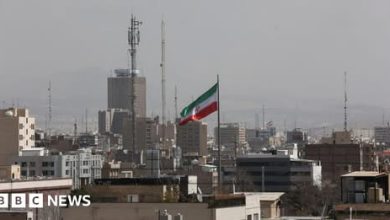FACEBOOK OFFERS TO PAY NEWS CORP FOR CONTENT IN AUSTRALIA

Facebook has agreed to pay Rupert Murdoch’s News Corp Australia for journalism from its local mastheads.
The deal was secured just weeks after Australia passed a controversial world-first law aimed at making tech platforms pay for news content.
News Corp has not disclosed the value of the three-year contract in Australia. Last month, it clinched a global deal with Google.
Mr Murdoch’s media empire began with his Australian newspapers.
The deal covers all of News Corp Australia’s content. It controls about 70% of newspaper circulation in Australia with titles including The Australian, The Daily Telegraph and The Herald Sun.
It also owns news.com.au, as well as the Fox News-modelled conservative TV network Sky News Australia, which has grown to become the most-shared Australian news brand on Facebook.
News Corp already has a different deal with Facebook for its US media titles. It involves the platform paying for stories to include in its Facebook News tab – a product not available in Australia.
The Australian deal is much broader, covering all News Corp Australia content shared on Facebook.
How has this been achieved?
Like other publishers globally, Australian media outlets lost revenue in the past decade as advertisers turned to internet giants such as Facebook and Google.
The tech firms argue they simply enable people to find news content and help news publishers by driving traffic back to news sites from their platforms. But carrying news content also drives viewers – and advertising money – to the tech giants, news producers say.
News Corp spearheaded a lobbying campaign in Australia – with support from its traditional rivals – to get politicians to make the tech firms pay for news content from its sites.
The Australian government then drew up legislation to enshrine “fairer” contract negotiations between media and tech companies.
The News Media Bargaining Code encourages tech firms to strike their own commercial deals with media outlets, such as this one between Facebook and News Corp. Without such deals, the law would potentially force tech firms into forced arbitration with publishers over the value of content.
Battles over the law’s design led Facebook to suddenly block all access to Australian news content on its site last month.
The news ban lasted for about a week before the Australian government made concessions and passed the law on 25 February.
On Tuesday, News Corp chief executive Robert Thomson praised the Facebook deal as a “landmark in transforming the terms of trade for journalism”.
“Rupert and Lachlan Murdoch led a global debate while others in our industry were silent or supine as digital dysfunctionality threatened to turn journalism into a mendicant order,” said Mr Thomson.
“This digital denouement has been more than a decade in the making.”
Analysts looking at Australia’s media law have long suggested that it is primarily designed to help big firms like News Corp as opposed to smaller media titles.
Another of Australia’s top three media companies – Seven West – also signed a deal with Facebook last month.
The Facebook-News Corp deal came as a parliamentary inquiry in Canberra examined News Corp’s media dominance and influence in domestic affairs.
This deal was always going to be big. News Corps owns a huge chunk of the media market here in Australia. So it’s not surprising that when Facebook finally agreed to start payment negotiations after parliament passed the News Media Bargaining Code, the Murdoch empire was going to get a substantial sum, even if they haven’t shared the number.
But the fact that Facebook sat down and negotiated payment for news outlets is headline worthy – this is our first glimpse at what the application of this massively disputed law will look like.
The key for this code, however, is going to be how smaller media outlets and local newspapers fare with it. They are the ones which have suffered the most in loss of advertising revenue.
Also, what hasn’t been put to the test yet is how Facebook will react to forced arbitration if it’s unable to reach a deal with a given news company. Remember, when the government was advocating for this legislation it said that one of its aims was to tilt that balance of power in the skewed dynamic between the tech giants and the media.
The idea isn’t just that conglomerates like Rupert Murdoch’s reach massive payment agreements. The big headline is when a small local news outlet is able to confidently negotiate with Facebook and get paid for news content they create for their communities.





